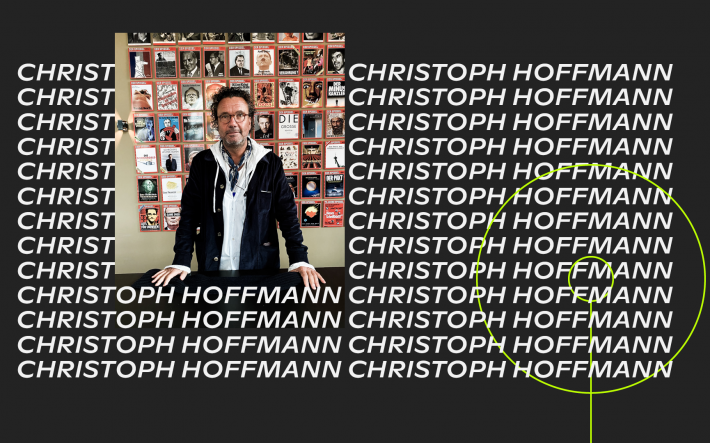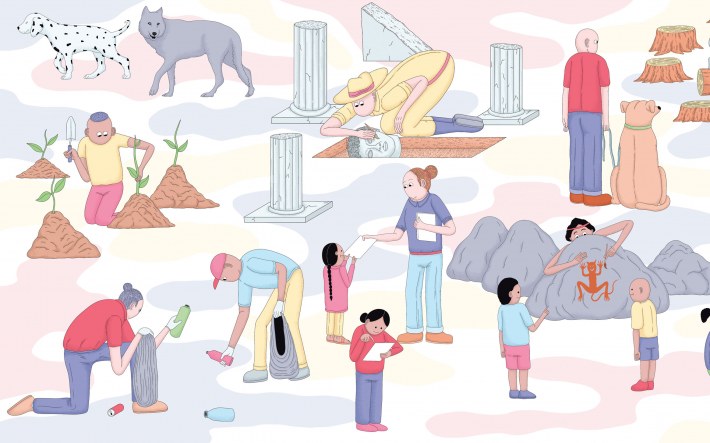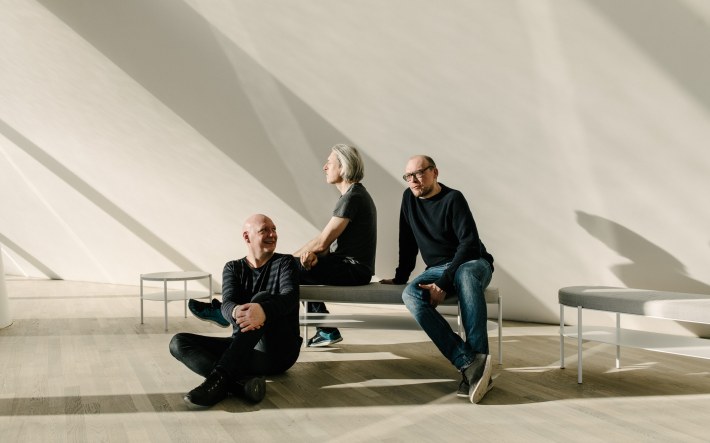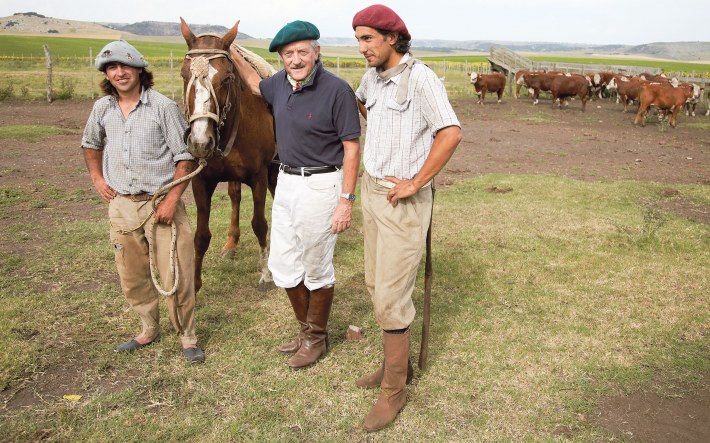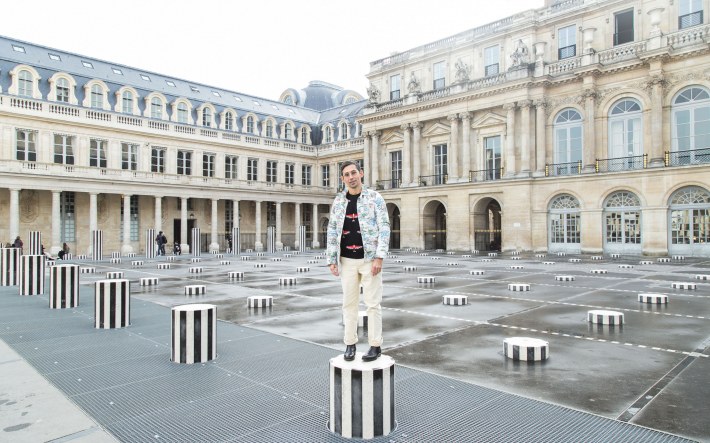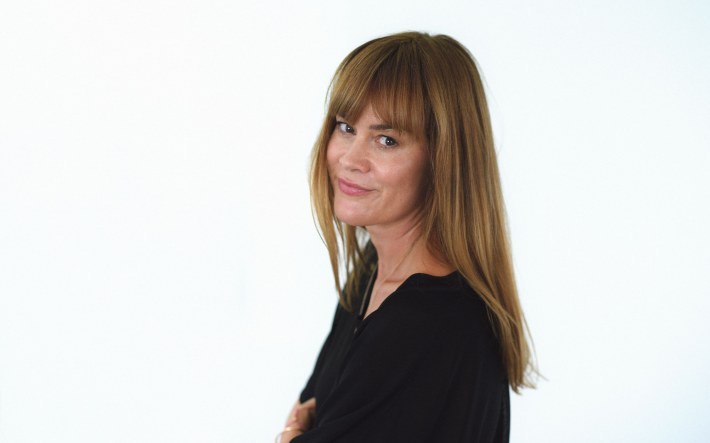If not Now, then When?
The members of electro punk band Egotronic have been engaging in musical hedonism for 19 years – a kind of hedonism which can increasingly be viewed as a political outcry. Their latest album Ihr seid doch auch nicht besser (You’re No Better Either) represents the zenith of this development. It’s about the erosion of the political center and the necessity of forging new alliances.
Pounding punk, an in-your-face staccato bass, the beat of the drums, electronic sounds simmering in the background and singer Torsun Burchkard aggressively bellowing his lyrics into the microphone – Egotronic sounds a bit like the Sex Pistols might after some advanced DJ training. With nine pop culture albums under their belts, the band from Berlin has become a permanent fixture on the German music scene. Their impact? Always sceptical, always critical of the system and always prepared to ask the awkward questions.
Since they were founded, Egotronic has remained as true to their sound as they have their political fighting spirit. If anything, this fighting spirit has intensified even more as the world’s political situation has changed. In their last album Keine Argumente (No Arguments) (2017) Egotronic gave a forthright warning of a paradigm shift: When right-wing tendencies are the order of the day, and stay strong and persistent for long enough, at some point a certain level of indifference towards them will be displayed. It’s precisely this which Torsun believes is the most dangerous development we are seeing today – not only in Germany, but across the whole of Europe.
The unpretentious, jagged chords and lashing electronics are not just the perfect background, but also next-level-punk. Thanks to catchy choruses, listeners hear the polarising messages in an almost playful way. ‘You find us really cool, yet still feel nationalistic, you can kiss my arse, I don’t want to be with you,’ go the lyrics in Tolerante Nazis (tolerant Nazis).
Torsun is sitting on the steps of a hipster Berlin café in an inner courtyard: It’s a little dingy, with brightly coloured graffiti on the walls into which large white windows are recessed. They allow a view into airy agency offices, outside which there are parking spaces for oversized SUVs. The city’s contrasts could not be expressed any more clearly: Berlin is a melting pot for many different things – capitalism, creativity, loss of control, gentrification proceeding apace; destruction in equal measure. A few years ago, Egotronic came across as like jokers who made us forget the future: as lefties who rejected conservative lifestyles. Today that’s all been put on the backburner. Torsun and his bandmates have more important things to turn their attention to.

Their new album has become a clear snapshot of what’s currently going on in Germany. The album tackles the erosion of the term ‘political centre.’ For example, at the beginning of the year there was a nationwide scandal when photos emerged on social media which showed influential media representatives, journalists and publicists at a prestigious birthday party. They were celebrating alongside well-known, self-confessed right-wing extremists. For Torsun, this case is a clear sign that boundaries are becoming blurred. ‘They were celebrating at this party together – staunch Nazis alongside everyone else. Ultimately this shows just one thing: the social acceptance of right-wing extremism,’ he explains. When the photos were published, something flipped for Torsun. All of a sudden, there was concrete evidence that right-wing extremism had become mainstream. The artwork on the new album recreates of one of these published photos – including the Instagram look and hashtags.
However, the problem is not just a German one: the whole of Europe has changed. ‘Since the so-called ‘refugee crisis’, you notice right-wing radicalism more than ever,’ says Torsun. The right-wing populist Alternative Für Deutschland (AFD) has been trying to make its racist ideas socially acceptable since the party was founded in 2013. After winning seats in the German Bundestag in 2017, they have been propagating their ideas at the highest level of national politics. For years the party has had an influx from a wide-range of social classes. There are similar developments in France, too. In the 2017 presidential election, Marine Le Pen with her Front National, which has since been rebranded Rassemblement National (National Rally), was a serious rival to president Emmanuel Macron. Right-wing parties are already governing in Poland, Italy and Hungary.
However, for Egotronic, it is not just these examples which clearly demonstrate an institutionalised right-wing political trajectory: ‘The new right is having an effect,’ says Torsun. ‘Thanks to constant pressure from the right, we are all now discussing things at a level which didn’t exist years ago.’ All of a sudden, there are public debates about whether refugees at sea should be rescued or not. ‘As if there could be different responses to that!’ says Torsun. He is unable to keep the disbelief out of his voice. ‘People in need should be given help. Any other response is inhumane.’
Torsun can’t understand why people haven’t long since taken to the streets, more often and stronger than ever before, to demonstrate their grievances. For him, keeping quiet is no longer an option. He thinks that, as far as possible, every single person should take a stance and get involved. ‘If not now, then when?’, asks Torsun. ‘Above all, German history shows us that if you wait long enough and keep quiet, then at some point you can no longer say anything. Then all of us in the whole of Europe will soon be unable to speak freely.’ At least Egotronic makes music which speaks a clear language: no tolerance for Nazis and right-wing ideologies. They are supporting their new album with an extended tour in the second half of this year. ‘We always get people coming who share our views,’ says Torsun with a smile.
Torsun is looking forward to the small clubs they will play at, packed with ‘good people’, as he calls them. The revolt will be celebrated together – a rebellion against inhumanity, intolerance and xenophobia through music. According to Torsun, together they can give each other energy for the daily battles faced outdoors. And who knows who they will be able to reach with a concert like this. Perhaps someone who will go back out into our difficult world and make it that little bit better. Torsun, for one, believes that it can get better again. ‘It has to,’ he says.
Listen to the playlist The Pogo and Politics Playlist:


